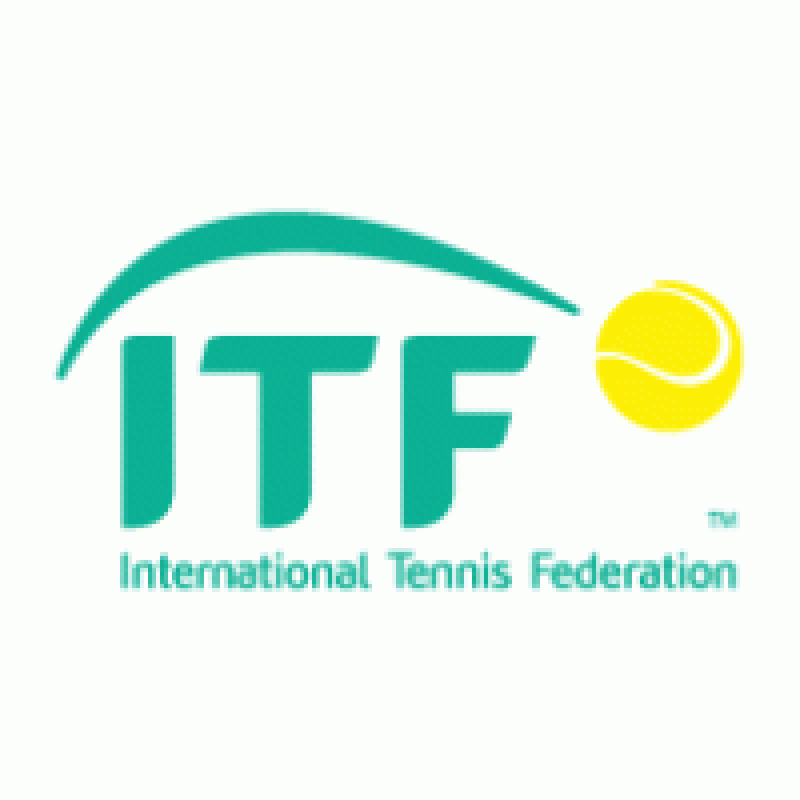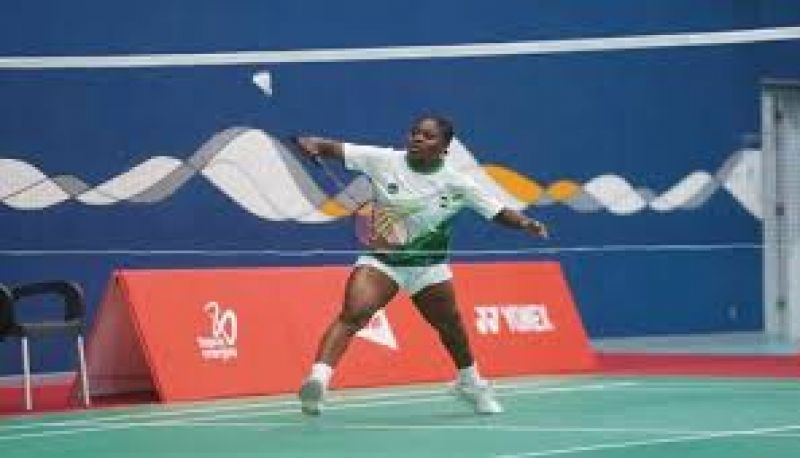By Daily Sports on April 26, 2018

A “tsunami” of match-fixing is plaguing lower-level tennis events, says a long-awaited report into corruption in the sport.
But the Independent Review Panel (IRP) found no evidence of a cover-up of these issues by governing bodies or the Tennis Integrity Unit (TIU).
The report also shows no evidence of top-level players being implicated.
The two-year review - which BBC Sport understands cost close to £20m to fund - spoke to more than 100 players.
It also surveyed more than 3,200 professionals.
Of those surveyed, 464 said they had first-hand knowledge of match-fixing.
Led by Adam Lewis QC, the panel was set up in January 2016 after a BBC and BuzzFeed News investigation uncovered suspected illegal betting.
It found a “very significant” corruption problem at “lower and middle levels of the sport” which Lewis described as a “fertile breeding ground for betting breaches”.
He also said that from 2009 to 2017, men’s matches were responsible for 83% of alerts to suspicious matches.
The report also shows “evidence of some issues” at higher levels, such as Grand Slams and Tour events, but the evidence does not reveal a “widespread problem” in elite professional tennis.
Asked if tennis fans could believe what they are seeing at major tournaments this summer, Lewis replied: “Yes, the data shows that there is very little incentive to breach integrity at the top level therefore it’s unlikely it will happen.”
Other key findings and recommendations include:
Report authors were told of a “match-fixing ‘season’” from October until the end of the year with “traces of up to two or three fixed matches per day” in International Tennis Federation (ITF) tournaments
*Investigations at Grand Slams were “insufficient”, while the ATP, the organisational body of men’s professional tennis, was guilty of “failing to exhaust potential leads before ending investigations”
*The sale of official live scoring data, at least at ITF and Pro Circuit levels, should be discontinued because it has increased the problem
*Adopting a realistic approach to how many players can be considered professional, and a reorganisation and reform of the TIU, the sport’s anti-corruption body.
The report also proposes an end to betting sponsorship in tennis, especially tournaments.
It also draws on statements from more than 200 key stakeholders in professional tennis, including from governing bodies, tournament organisers and betting operators.
‘A fertile breeding ground’ — why match-fixing is taking place
In the course of its investigation, the panel was told by one betting operator that “the situation in tennis was grimmer than grim”.
But report author Lewis maintained that suspicious matches were more suited to lower levels of tennis where a blend of factors came together to create “a fertile breeding ground”.
Chief among them include the number of players struggling to make a living, few people watching the matches in person and the ITF’s decision to sell official live scoring data in 2012, making betting on lower-ranked matches far easier to achieve.
“Only the top 250 females and 350 male players are making enough money to break even before coaching costs, yet there are 15,000 nominally professional players,” Lewis said. “It’s a small step for a player who already intends to lose for other reasons to then bet or inform others of his or her intentions so as to make enough money to continue playing.”
He also said the number of alerts to suspicious matches had risen from three in 2012 – the year the ITF sold live scoring data – to 240 in 2016.
“According to [European Sports Betting Integrity firm] ESSA, since 2015 tennis has been responsible for more suspicious betting than for any other sport in each and every quarter,” Lewis said.
The report added that since the data deal, 60,000 matches were available to the betting market in 2016, up from 40,000 in 2013.
As well as recommending that the sale of scoring data should discontinue “at least at ITF and Pro Circuit levels”, the report also said tennis should stop tournaments being sponsored by betting firms and governing bodies should introduce measures to deal with the “intolerable levels of online abuse, often from disappointed bettors.”
•
Source Daily Sports
Posted April 26, 2018
You may also like...

Brighton Close To Premier League Safety After Beating...

Go Round Head Coach Loses Mother on the...

FIBA Ranking: Nigeria Retains Top Spot In Africa...

English FA to ask Sunderland boss to explain...

Solskjaer: Man Utd Job Turning My Hair Grey...

Amusan eyes another victory in Zurich on Thursday...

 Cameroon friendly to shape WAFCON squad — Madugu
Cameroon friendly to shape WAFCON squad — Madugu Fury sends Joshua support, turns down bout after tragedy
Fury sends Joshua support, turns down bout after tragedy Wolves secure rare win to dent Villa’s bid for Champions League place
Wolves secure rare win to dent Villa’s bid for Champions League place Solaja re-emerges BFN South East rep
Solaja re-emerges BFN South East rep Usman makes welterweight title claim
Usman makes welterweight title claim I cried day I got Super Eagles call-up – Fago
I cried day I got Super Eagles call-up – Fago Osimhen strikes down stubborn Juve to book round 16 spot
Osimhen strikes down stubborn Juve to book round 16 spot Ogazi wins SEC Scholar-Athlete of the Year
Ogazi wins SEC Scholar-Athlete of the Year Falcons begin training ahead Lionesses clash
Falcons begin training ahead Lionesses clash Newcastle cruise 9-3 into UCL last 16, Leverkusen dump out Olympiacos
Newcastle cruise 9-3 into UCL last 16, Leverkusen dump out Olympiacos Finidi wary of difficult Barau test
Finidi wary of difficult Barau test Pillars coach optimistic of NPFL survival
Pillars coach optimistic of NPFL survival Rangers International going, going . . . (63,584 views)
Rangers International going, going . . . (63,584 views) Amaju Pinnick: A cat with nine lives (54,891 views)
Amaju Pinnick: A cat with nine lives (54,891 views) Second Term: Amaju Pinnick, Other NFF Heavyweights Home to Roost •How Pinnick Broke the Jinx (52,812 views)
Second Term: Amaju Pinnick, Other NFF Heavyweights Home to Roost •How Pinnick Broke the Jinx (52,812 views) Current issues in Nigerian sports: Matters arising (52,434 views)
Current issues in Nigerian sports: Matters arising (52,434 views) Sports Development: Zenith Bank on the zenith (52,350 views)
Sports Development: Zenith Bank on the zenith (52,350 views) Missing $150,000 IAAF Grant: Solomon Dalung’s Hide and Seek game (52,264 views)
Missing $150,000 IAAF Grant: Solomon Dalung’s Hide and Seek game (52,264 views) Gov. Abdullahi Ganduje’s solid footprints, commitment to sports development in Kano State (52,141 views)
Gov. Abdullahi Ganduje’s solid footprints, commitment to sports development in Kano State (52,141 views) NFF Presidency: Pinnick, Maigari, Ogunjobi, Okoye in Battle for Supremacy (51,684 views)
NFF Presidency: Pinnick, Maigari, Ogunjobi, Okoye in Battle for Supremacy (51,684 views) Olopade, BET9A wave of revolution in NNL (50,856 views)
Olopade, BET9A wave of revolution in NNL (50,856 views) Commonwealth Games 2018: Shame of Muhammadu Buhari, Solomon Dalung (49,381 views)
Commonwealth Games 2018: Shame of Muhammadu Buhari, Solomon Dalung (49,381 views) Ibrahimovic’s Man U exit: Whose decision is it? And in whose interest? (47,770 views)
Ibrahimovic’s Man U exit: Whose decision is it? And in whose interest? (47,770 views) John Mikel Obi: Segun Odegbami’s Outrageous Call! (47,247 views)
John Mikel Obi: Segun Odegbami’s Outrageous Call! (47,247 views)